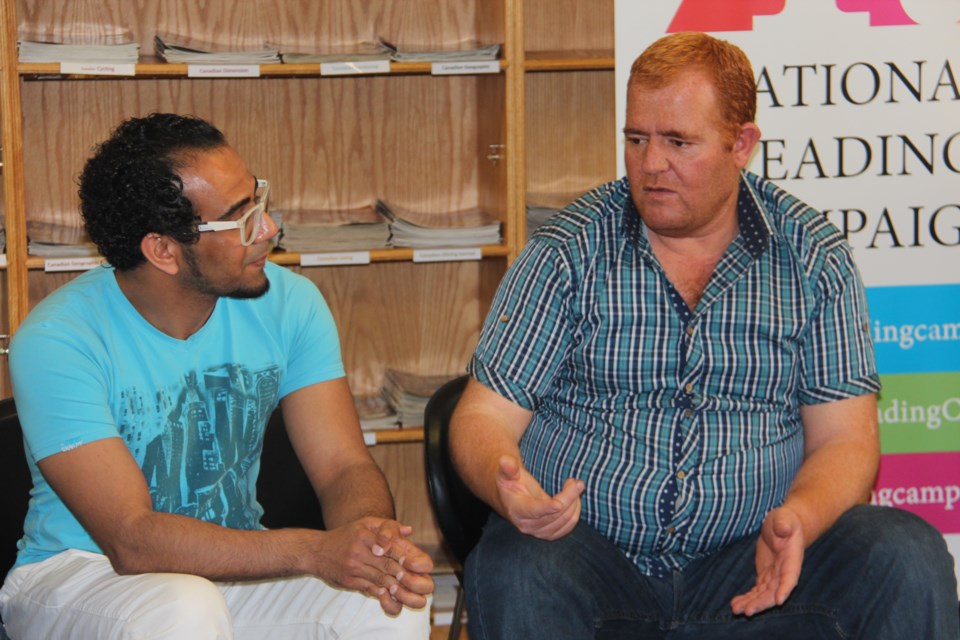A Syrian refugee who recently settled in Sudbury with his wife and kids shared with those gathered at a Reading Town Sudbury event May 6 his story of being tortured by police in his home country.
Along with his family, Hussein Qarqoz was invited to participate in the event held at the downtown library examining stories of the immigrant experience.
Also taking part were academic and author Monia Mazigh, whose husband, Maher Arar, was tortured in Syria after being deported there in 2002, playwright and human rights activist David Yee and local author Richard Mende.
Qarqoz, who arrived in Sudbury Dec. 31, and is now working part-time at Golden Grain Bakery, was able to share his experiences with the help of an interpreter.
He said he owned a restaurant next to a police station in Homs, Syria in 2011 when the civil uprising started.
Qarqoz made the mistake of complaining to the police about protesters being shot, and was promptly arrested. He said he was tortured with electrocution, beatings and being hung from the ceiling by his hands.
“The one that was questioning me, whatever he had to ask me, I had to admit it in order for them to stop beating me up,” said Qarqoz, speaking through the interpreter.
Before travelling to Canada late last year, the Qarqoz family was living in exile from their country in Lebanon. Qarqoz said he's thankful for the welcome Sudburians have shown him.
“Thank you for everything you guys did to us so far, and especially the Sudburian people,” he said.
“You guys are really friendly. I hope as soon as possible I will be admitted to your culture and do something so that I can pay back to your community.”
Mazigh said she felt “a little bit overwhelmed” in hearing Qarqoz's story, as it's one thing to hear things like this in the media, and another to hear it from a survivor.
“My husband is from Syria,” said Mazigh, who immigrated to Canada from Tunisia in 1991, and is the author of “Hope and Despair,” a book about her tireless campaign for her husband's release.
“He grew up in Damascus. Unfortunately he was forced to back to Damascus, not because he wanted, but because the Americans deported him to there. Hearing what Hussein and his family and friends have been submitted to is so much similar to what my husband was telling me when he came back from prison and torture.”
While the physical and psychological effects of torture are bad, Mazigh said, the worst thing is “the fact that they treat you not as a human being.”
Sharing such stories is important because it creates understanding, she said.
“This is what makes us closer to each other, talking to each other and writing stories so we can share them,” Mazigh said.
Yee, a Governor General Award-winning playwright — born in Toronto to immigrant parents — said Qarqoz's revelations highlight the importance of giving immigrants a voice.
“I work with a lot of immigrants,” he said.
“I founded the Asian Canadian Theatre Company. I've been running that for the past 13 years. The importance of telling these stories and hearing these stories is paramount.
“Unless you're from an aboriginal community, we're a country of immigrants. The erasure that the Canadian government used to effect on its immigrant community was horrific, and I write plays about that sometimes.
“The landscape of that is changing. We're becoming slowly more human, more how we should be.”
